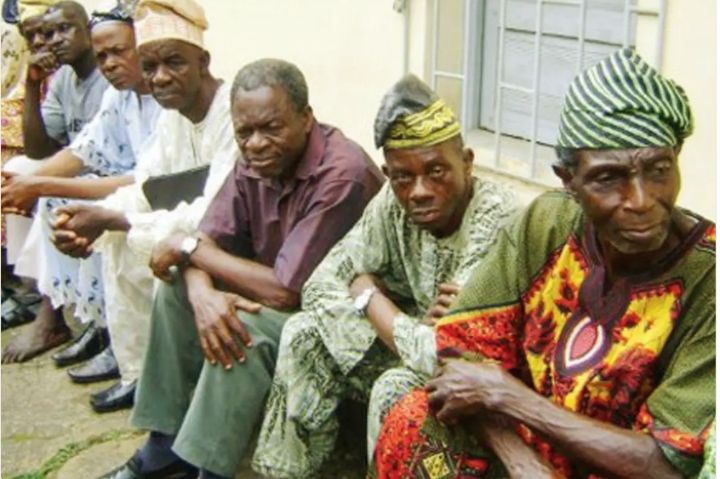Balogun Fathia Idowu

Former federal civil servants in Nigeria are experiencing significant financial hardship due to the government’s failure to release N230 billion in pension arrears.
Despite the 2023 budget plans, no funds have been disbursed, leaving many retirees in a precarious situation after years of service to the nation.
This article delves into the personal struggles of these retirees, the broader national impact, and the socio-economic issues stemming from this crisis.
Retirees such as Alhaji Musa, who dedicated 35 years of service, find themselves in dire straits. “I never imagined my retirement would be so challenging,” Musa laments, detailing his struggle to meet basic needs.
The lack of pension payments means many retirees are unable to afford healthcare, housing, or daily expenses, forcing them to depend on the generosity of family and friends.
While retirees grapple with unpaid pensions, Nigeria is also contending with a security crisis. In Gwoza Local Government Area of Borno State, a series of suicide bombings has resulted in the deaths of 23 people, drawing nationwide attention and sorrow.
President Bola Tinubu has vowed to bring the perpetrators to justice, highlighting the government’s focus on security amidst escalating violence.
Economic challenges further compound the nation’s stress. The Nigeria Customs Service recently grounded a US-registered Gulfstream G650ER jet belonging to a major Nigerian bank over unpaid import duties, raising concerns about financial accountability.
Concurrently, planned two-month power outages in Ondo and Ekiti states have sparked worries about the impact on daily life and businesses.
Press freedom is also under threat, with the Daily Trust reporting that at least 10 journalists were arrested last year under the Cybercrimes Act 2015. This trend jeopardizes press freedom and democratic principles, igniting debates about balancing security and free speech.
In Katsina State, Governor Dikko Radda’s inquiry to Emir Abdulmumini Usman regarding the absence of district heads during the Durbar for Eid-El-Kabir underscores ongoing cultural and political tensions.
These incidents illustrate the complex interplay between tradition, governance, and societal expectations.
Economic difficulties persist. Banks are now trading cash with point-of-sale (POS) operators while ATM galleries in major cities remain cashless, indicating severe cash shortages that disrupt daily transactions.
This financial strain exacerbates the broader economic anxiety facing Nigerians. The government’s plan to commence work on the Cross River and Akwa Ibom sections of the Lagos-Calabar coastal road represents a step towards infrastructure development.
However, issues remain, such as the indefinite leave of Ibrahim Lamuwa, the Permanent Secretary of the Federal Ministry of Foreign Affairs, amid a sexual harassment investigation.
Experts warn that the continued delay in pension payments could have long-term socio-economic repercussions.
Economist Dr. Amina Yusuf explains, “The government’s failure to pay pension arrears undermines trust in public institutions and exacerbates poverty among the elderly.”
As Nigeria navigates these turbulent times, resolving the pension crisis is crucial for restoring retirees’ dignity and ensuring a stable future.
As Nigeria confronts these challenges, the point of view of federal retirees underscores the urgent need for government accountability.
The coming months will be pivotal in determining whether the government can provide hope and security to its retirees while addressing the myriad challenges testing the nation’s resilience.
The personal suffering, national impact, and broader socio-economic implications highlight the need for immediate and sustained action to resolve this escalating crisis.
